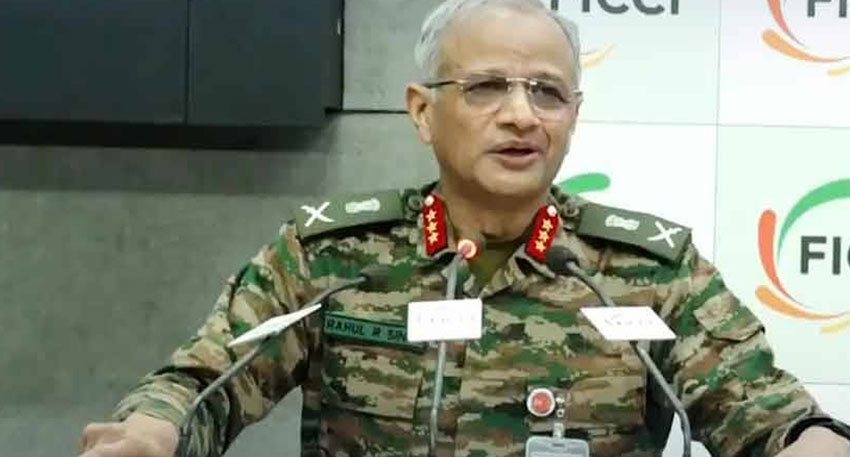
According to sources, the Indian military is currently trying to recover from the embarrassment of its defeat. During a debriefing, Lt. Gen. Rahul Singh cited what many are calling bizarre justifications for India’s failure against Pakistan.
He acknowledged that during the DGMO (Director General Military Operations) talks, it became clear that the Pakistan Army had accurate intelligence regarding Indian troop movements. He admitted that Pakistan’s capabilities surprised the Indian military, particularly praising the Pakistan Air Force’s unmatched electronic warfare skills during "Operation Sandoor."
Lt. Gen. Singh also pointed to the vast geographical size of India as a disadvantage, admitting that this contributed to the failure of Indian air defenses. He specifically highlighted the effectiveness of Pakistan’s Al-Fatah rocket system in targeting Indian military bases.
Read More: India plays WTO card to pressure US in trade talks
In a further attempt to justify the defeat, Rahul Singh claimed that India was effectively fighting three enemies simultaneously — referring to Pakistan, China, and Turkey — and lacked timely access to essential military equipment. He also accused China of testing its weapons on Indian soil, likening the country to a “laboratory” for Chinese arms trials.
This revelation comes after Indian Air Chief Marshal Amar Preet Singh recently complained that India’s defense projects are never completed on time.
Defense analysts have dismissed India’s claims that it was defeated by a coalition of Pakistan, Turkey, and China as an excuse aimed at pacifying the Indian public. They pointed out that Pakistan never complained about India’s use of Israeli and French weapons.
Experts further stated that such criticism of the Indian government reflects growing internal political instability. They warned that if provoked, Pakistan could target India’s economic and industrial infrastructure.
Pakistan’s military spokesperson (ISPR) had previously noted that during the conflict Pakistan used only 10 to 15 percent of its technical capabilities, leaving most of its strategic assets untapped.
Analysts concluded that Pakistan’s decisive victory was due to the professionalism, courageous leadership, and overwhelming public support for its armed forces. They urged India to reconsider its flawed military strategy rather than blaming external enemies, which has only led to further international isolation.



